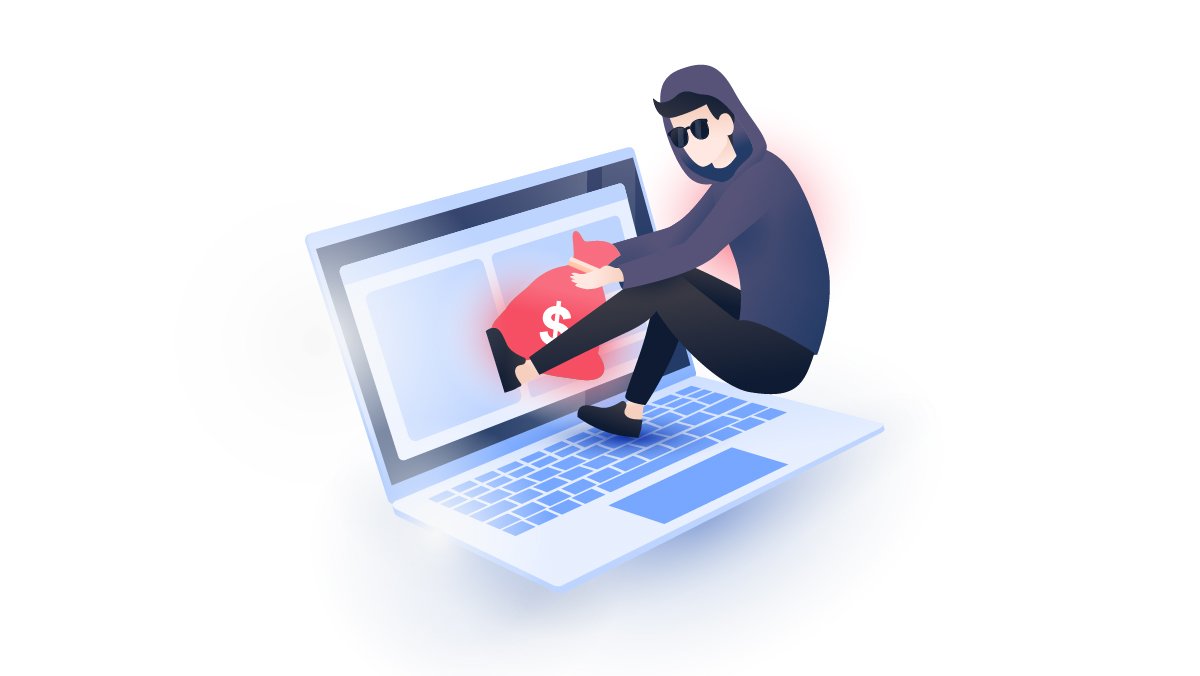How to tell if your Facebook has been hacked in 2022
In 2018, hackers breached 50 million Facebook user accounts. Facebook's frequently mishandles users’ data, so if you use it, there’s a good chance someone you don’t know about has your data.
Paul Black
Jun 14, 2021 · 4 min read

Contents
Securing your account is extremely important. Find out how to make your life on Facebook less vulnerable.
How to tell if your Facebook has been hacked
You can check if someone else is logged into your Facebook like this:
1. Go to your Facebook profile and press the triangle dropdown menu button in the top right.

2. Go to Settings->Security and Login->Where You're Logged In.

3. Check if you recognize all the devices. If you see one you don't know, click on the three-dot icon and press Not You?

4. Click Secure Account and follow the steps provided by Facebook.

You can also log out of the session by pressing Logout or log out of all sessions at once by pressing Log Out Of All Sessions in the same window.

If you see any activity you don't recognize on your account, it is another sign that you have a hacked Facebook account. For example, if you get an email that somebody tried to change your password or login to your account and you are sure it was not you, it is a sign of a possible breach.
What to do if your Facebook account is hacked
It happened. You found your Facebook hacked. Now, you’ll want to know how to fix it.
Learn how to reset Facebook password, because that should be your very first step. You can do this by:
1. Going to Facebook’s settings panel.
2. Clicking on Settings->Security and Login and then Login->Change Password.

If the hacker changed your password, you can do the following:
1. Click on Forgot account? in Facebook's login window below your password field and follow the steps indicated.

2. Enter your email associated with your Facebook account.

3. If you don't have access to any of the methods suggested, click on No longer have access to these? and proceed to identify yourself.

You can also recover external accounts by going to Settings->Security and Login->Advanced->Recover external accounts.

Now that you’re in control of your password, follow the steps described in the first part of the article.
Also, inform Facebook immediately about the hack attempt. You can do so by clicking here, choosing the most suitable option for you and following the steps.
How to prevent your account from being hacked
You can take these steps to make yourself less susceptible to hacker attacks:
1. Create a strong password. We have tons of tips on passwords here, and we also have a password manager! You can also change your Facebook-associated apps’ passwords by going to Settings->Security and Login->App passwords. This will prevent a hacker from immediately accessing all your other Facebook-related accounts.

2. Choose friends to contact if you get locked out. You can choose 3 to 5 people to help to retrieve your account. Go to Settings->Security and Login->Choose friends to contact if you get locked out.

3. Use two-factor authentication. Facebook will ask for an additional security code if it notices an unusual connection. Go to Settings->Security and Login->Use two-factor authentication. Here you can choose a preferred authentication method.

4. Adjust your privacy settings. Make yourself less visible to outsiders by changing the settings from Public/Everyone to Friends or Friends you choose. It will minimize the info displayed about you and the possibility of unwanted attention. Hackers and scammers are creative, and can use publicly available information in creative ways to breach their targets’ security. Also, make sure you review posts you publish on your wall or the ones you are tagged in before they appear on your timeline. This will prevent unwanted info from appearing on your wall.

5. Enable security alerts. Facebook will inform you if someone connects to your account from a device you don't regularly use. Go to Settings->Security and Login->Get alerts about unrecognized logins and choose the most appropriate options for you.

6. Take extra precautions while browsing Facebook:
- Double-check every link or attachment to make sure it is reliable;
- Double-check pages you follow and your friends list. See whether you have any that you don’t recognize or find suspicious;
- Be careful when communicating with people you don’t know or have little common connections. Do not give out any personal info if you don’t trust a person completely;
- If Facebook frequently logs-off automatically while browsing, there is a sign of a possible breach;
- Check whether there are some comments or messages you don’t remember writing or purchases you don’t recognize. They might be done by an intruder.
7. Read our blog post for more tips and keep an eye on the news for info about Facebook security issues.
If you no longer want to risk your info leaking, you might consider deactivating or even deleting Facebook and Messenger accounts.
8. Use a VPN. A virtual private network hides your IP address and encrypts your traffic, mitigating the risk of being spied on by data snoopers. If you often connect to public networks, having a VPN enabled on your device can significantly improve your security. Otherwise, hackers can set up a fake hotspot, monitor your sensitive information, and steal your Facebook credentials.
NordVPN Android and iOS apps have the Dark Web Monitor feature, which notifies you if your personal details are leaked on the dark web. With one NordVPN account, you can protect up to six devices: tablets, laptops, smartphones, routers, and more.

